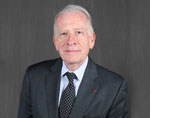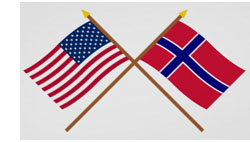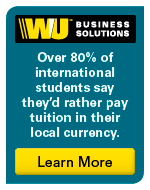
| IIE Home | Membership | Publications | Open Doors | Contact Us | Subscribe |
|
||
|
News
If your institution is seeking to develop strategic institutional partnerships with institutions of higher education, please consider applying for IIE's International Academic Partnership Program (IAPP). IIE’s Center for International Partnerships is pleased to offer two international partnership initiatives for the 2014-2015 cycle: Brazil and Colombia.
Following five years of success, the International Academic Partnership Program (IAPP) will again guide a select a group of U.S. higher education institutions over the course of a year in strategic planning activities focused on implementing partnerships with counterparts in the country of focus, either Brazil or Colombia. Since 2009, IAPP has engaged almost 100 U.S. higher education institutions in comprehensive, year-long programs aimed at increasing the number of partnerships between U.S. higher education institutions and their counterparts abroad. Past participants have increased faculty exchanges, implemented strategic partnership plans, and expanded study abroad offerings.
Applications are currently available for the following two IAPP programs:
IAPP BRAZIL
Application Deadline: extended to November 21, 2014
Program Dates: November 2014-October 2015 Week-Long Study Tour to Brazil: April 2015 (TBD) Program Fee: $12,500 for IIENetwork member institutions; $14,000 for nonmember institutions IAPP COLOMBIA Application Deadline: December 19, 2014
Program Dates: January 2015-December 2015 Week-Long Study Tour to Colombia: May or June 2015 (TBD) Program Fee: $12,500 for IIENetwork member institutions; $14,000 for nonmember institutions Application Deadline: November 21, 2014 | Fund and Nomination Details
The Emergency Student Fund (ESF) of the Institute of International Education (IIE) is issuing a call for nominations from United States colleges and universities who have Syrian students on campus with urgent financial need due to the conflict in Syria.
Accredited U. S. campuses are invited to nominate up to five Syrian students at their institutions for whom help is needed to complete the spring semester 2015. International Student Advisers or other campus officials should complete the Syria-ESF nomination form and e-mail it to ESF@iie.org by November 21st, 2014, 5:00 PM EST. IIE’s Syria-ESF will provide emergency grants ranging from $5,000 to $10,000 each to Syrian students nominated by their U.S. host colleges and universities who are unable to continue or complete their degree program in the U.S. due to serious financial difficulties precipitated by the situation in their home country.
 Dr. Allan E. Goodman, IIE President and CEO, shares about two U.S. Fulbright teachers at secondary schools in rural Malaysia. At a dinner in Kuala Lumpur, hosted by the Malaysian-American Commission on Educational Exchange, Goodman asked the teachers what they would bring back home from their experience. "My students are all very poor and know they will work on the plantation," replied one teacher, who plans to teach in American communities facing poverty. "I learned that teaching is not always about showing someone a way out but a way to live if they can't get out." Dr. Allan E. Goodman, IIE President and CEO, shares about two U.S. Fulbright teachers at secondary schools in rural Malaysia. At a dinner in Kuala Lumpur, hosted by the Malaysian-American Commission on Educational Exchange, Goodman asked the teachers what they would bring back home from their experience. "My students are all very poor and know they will work on the plantation," replied one teacher, who plans to teach in American communities facing poverty. "I learned that teaching is not always about showing someone a way out but a way to live if they can't get out."Read blog An article in Al-Monitor shares the experience of Mona Karam, a young Egyptian civil engineer, as a participant of TechWomen. The program, run by the Institute for International Education's Center for Women's Leadership Initiatives in San Francisco, pairs each participant with two successful American women—a professional mentor and a cultural mentor—for five weeks of exchange and networking in the San Francisco Bay Area and Washington, DC. "We lack the role models," said Karam. "That's why [women] drop out of ... STEM fields, because of the whole perception that it's a man-dominated field."
Ms. Ann Cotton, OBE, Founder, and President of Camfed, the Campaign for Female Education, was named the 2014 WISE Prize for Education Laureate. An article about the prize in Vanguard quotes H.E. Sheikh Abdulla bin Ali Al-Thani, Ph.D., Chairman of WISE, "Ann Cotton has dedicated her life to improving the education of girls and the empowerment of young women in sub-Saharan Africa. She has created a successful education model not only benefiting millions of children from the poorest areas but also ultimately entire communities."
Despite the difficult situation in Syria, the German Academic Exchange Service (DAAD) has continued its support for Syrian students and academics. With funding from the Federal Foreign Office, the DAAD now plans to expand this assistance. A scholarship program with a total budget of 7.8 million will give one hundred Syrian students the opportunity to complete their studies in Germany and to participate in a socio-political accompanying program. The first Syrian students are expected to start their studies in Germany in spring 2015.
Zhao Xinying writes in China Daily about the increasing popularity of international departments in Chinese high schools. "By 2013, 22 public high schools in Beijing had gained admission from education authorities and established international departments, recruiting a total of 1,355 students," reports Xinying. "Attending international departments at public high schools, or even international schools, has become a popular and effective way for Chinese students to prepare for their academic life overseas before heading abroad."
Brendan O'Malley shares in University World News highlights of recent US News & World Report rankings. "The US has 134 universities in the top 500, followed by Germany with 42 and the UK with 38," writes O'Malley. "China has a strong showing with 27 institutions in the Best Global Universities ranking launched on 28 October."
Conferences
March 19, 2015, 9:00 AM–4:30 PM in London | Registration Deadline: March 16, 2015
Now in its third year, the International Higher Education Forum provides insights into the latest developments, trends and opportunities for universities through its access to the some of the most experienced professionals in the sector, government and partner organizations, and to senior representatives from a wide range of countries of interest to UK higher education institutions.
As the global higher education landscape continues to change, what can universities do to give themselves the competitive edge? What developments in other countries should you be aware of? And how will political change, both at home and overseas, impact your international activity?
Find out about what lessons can be learnt from international counterparts. Hear from the UK HE International Unit and others about existing opportunities and how to access them. Exchange ideas and strategies with other higher education providers.
March 22–24, 2015, in New Orleans, LA | Early Registration Deadline: January 31, 2015
Registration is open for the Third Annual Diversity Abroad Conference. Ideal for a variety of campus units and international education organizations, this year’s conference—Moving Beyond Barriers: Transforming International Education Through Inclusive Excellence—will include opportunities for professionals at all career levels to engage in thought-provoking exchanges about how to attract, retain, and serve underrepresented students in international opportunities.
This conference will explore the value of diversity in international education, new and creative ways to interact with students from a variety of different backgrounds, and innovative strategies to collaborate with other professionals in the field.
New this year: this year’s conference will include a high impact, day-long Leadership Workshop geared toward Senior campus administrators (e.g., Chief International Officer, Chief Diversity Officer) interested in develop a comprehensive leadership strategy on diversity and inclusion efforts in international education.
Questions? Contact Lily Lopez-McGee at lmcgee@diversityabroad.org or 510.982.0635 ext. 702.
Deadlines
 3rd Cycle Deadline: December 8, 2014 | Application and Fellowship Details for Scholars and Hosts 3rd Cycle Deadline: December 8, 2014 | Application and Fellowship Details for Scholars and HostsSixty Carnegie African Diaspora Fellows will travel to Africa to conduct joint projects submitted by host universities in Ghana, Kenya, Nigeria, South Africa, Tanzania and Uganda, supported by the second round of grants made by the Carnegie African Diaspora Fellowship Program. As early as December 2014, the scholars will travel to the African host institutions to collaborate on projects that include ecotourism, computer science and mobile technology, nursing education, materials engineering, archeology, theater, music, mathematics education, and a wide range of other areas designed to foster collaboration and build capacity at the host campuses.
The Carnegie African Diaspora Fellowship Program facilitates engagement between scholars born in Africa who are now based in the United States or Canada and scholars in Africa on mutually beneficial academic activities. The program is seeking applications for fellowships and host institutions. The application deadline for the 3rd round of fellowships is December 8, 2014. Project visits can begin as early as May 2015 and must be completed by August 2015.
Application Deadline: December 1, 2014 | Application and Scholarship Details
The application deadline is near for Education New Zealand’s scholarships for U.S. students . The awards, 33 in total, have been established to assist U.S. students with the costs of studying abroad in New Zealand. Education New Zealand Study Abroad Travel Awards, worth US$2,000, will go to seven students who demonstrate the talent and flair to be ambassadors for New Zealand as an international education destination. Recipients will be required to report on their experience through social media and other channels while in New Zealand. A further 26 Excellence Awards, each worth US$500, will be offered by New Zealand’s eight universities and participating Institutes of Technology and Polytechnics to assist with the up-front cost of traveling to New Zealand.
Please note that there is also second application deadline, April 30, 2015, for the fall 2015 semester.
Partnerships
 The Norwegian Centre for International Collaboration in Education (SIU) and the Institute of International Education (IIE) are collaborating on the inaugural Norway initiative of IIE’s International Academic Partnership Program, to expand U.S.-Norwegian engagement and foster strategic university partnerships. The Norwegian Centre for International Collaboration in Education (SIU) and the Institute of International Education (IIE) are collaborating on the inaugural Norway initiative of IIE’s International Academic Partnership Program, to expand U.S.-Norwegian engagement and foster strategic university partnerships. IIE and SIU have selected twelve U.S. higher education institutions to participate in the eight-month
International Academic Partnership Program. IIE's Center for International Partnerships in Higher Education will guide the institutions through a strategic planning process and training activities designed to assist each institution in implementing and sustaining partnerships with counterparts in Norway. The participating U.S. campuses are: Chatham University, Coastal Carolina University, Cornell University, New York Institute of Technology, Oregon State University, Sacred Heart University, University of Alaska-Fairbanks, University of Cincinnati, University of Delaware, University of Nebraska-Lincoln, University of Tennessee-Knoxville, and Washington & Jefferson College.
These partnership programs offer timely resources for campuses in both countries to explore areas of academic cooperation, including exchanging students and scholars and collaborating on research projects and degree programs.
Norway is also a commitment partner of IIE’s Generation Study Abroad initiative, which is a five year campaign to double the number of U.S. college students studying abroad. As part of the Norwegian government’s commitment to Generation Study Abroad, Norway will help to pay for the costs of a week-long study tour to Norway to explore mutual areas of interest and meet with potential partner campuses. Allan Goodman will lead the delegation of senior leaders of the U.S. higher education institutions participating in the program in April 2015.
Study Abroad
 The Council on International Educational Exchange (CIEE) announced a commitment to tackle the major barriers that keep students from studying abroad—cost, curriculum, and culture—with a centerpiece pledge of $20 million in scholarships and grants to American students through the Generation Study Abroad initiative. CIEE will also sponsor passports for 10,000 students to enable participation and make an annual $20,000 grant to college faculty to support innovative approaches for custom study abroad programs. The Council on International Educational Exchange (CIEE) announced a commitment to tackle the major barriers that keep students from studying abroad—cost, curriculum, and culture—with a centerpiece pledge of $20 million in scholarships and grants to American students through the Generation Study Abroad initiative. CIEE will also sponsor passports for 10,000 students to enable participation and make an annual $20,000 grant to college faculty to support innovative approaches for custom study abroad programs."CIEE’s greatly expanded outreach and scholarship offerings will make a significant contribution to expanding and diversifying the population of students who have the opportunity to study abroad," said IIE President and Chief Executive Officer Allan E. Goodman.
"Faculty and students alike consistently report their study abroad experiences are full of life changing, ah-ha moments," notes James Pellow, Ed.D., president and chief executive officer of CIEE. "Part of that change includes the realization that people in different countries, with different cultures and customs, are in many ways very similar to themselves. They are striving for a better life, for healthier children, for a more a peaceful world. This revelation helps students broaden their worldview and become more effective leaders of business, education, healthcare, politics and government."
CIEE will announce complete details of its commitment to Generation Study Abroad at the CIEE Annual Conference, November 19–22, 2014, in Baltimore.
"Most community college students haven’t left their counties for school; now a push is under way for them to leave the country," writes Patricia Alex in NorthJersey.com. Her article describes recent efforts by community colleges to encourage greater participation on study abroad. "Community colleges were marginally involved previously, but we are seeing momentum now," said Daniel Obst, Deputy Vice President of International Partnerships at IIE, referring to recent statistics showing a 13 percent increase in the number of two-year college students studying abroad.
 In his article in the latest edition of IIENetworker magazine, Sam Hoben with Education New Zealand shares about his country’s strategic efforts to market itself to international students. "As part of New Zealand government’s long-term economic growth strategy, Education New Zealand set a series of goals including doubling the economic value of international education to NZ$ 5 billion in 2025," writes Hoben. "Keep an eye our as New Zealand grows its global education profile." In his article in the latest edition of IIENetworker magazine, Sam Hoben with Education New Zealand shares about his country’s strategic efforts to market itself to international students. "As part of New Zealand government’s long-term economic growth strategy, Education New Zealand set a series of goals including doubling the economic value of international education to NZ$ 5 billion in 2025," writes Hoben. "Keep an eye our as New Zealand grows its global education profile." |
| www.iie.org/iienetwork • Member website of the Institute of International Education © 2025 Institute of International Education. All rights reserved. |



